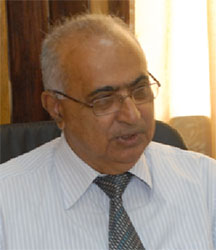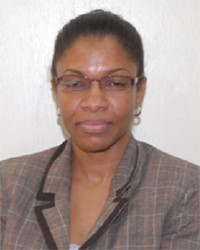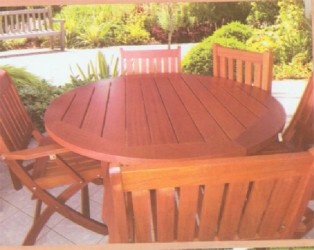Potential investors in value-added forestry products are being encouraged to examine some of the manufacturing options that might be available to the private sector under an initiative launched by the Forest Products Development and Marketing Council (FPDMC).
Executive Chairman of the FPDMC Rajnarine Singh told Stabroek Business in an interview earlier this week that the state-run agency which is being supported by the local manufacturing sector is seeking to accelerate investor interest in the production of a range of value-added commodities utilising little-used but potentially lucrative “emerging species” of local timber was in partial fulfillment of the entity’s mandate to significantly accelerate the promoting of the country’s lesser known forest species.
According to Singh only around 12-15 of the more than 1,000 species of timber known to exist in the country’s forests are commonly used, while perhaps a further 25 species are used with lesser frequency. He said the accelerated emphasis on the use of lesser known species sought to address, first, the business opportunities which those lesser known species offer as well as the concern that industry reliance on a few species of timber will eventually result in undue pressure on those species.
FPDMC Industry and Product Development Officer Laura Singh who shared the interview with the agency’s executive chairman identified a number of product streams that have been fashioned into profiles by the FPMDC. Potential, Singh says,

could exist for the production of briquettes, safety matches, mosquito coils, tooth picks, wooden clothes pegs, wooden lamps and ladders and wooden kilns among other products from some of the lesser known species.

Officer Laura Singh
The agency’s Executive Chairman told Stabroek Business that it was receiving support in the scientific examination of species to determine the purposes for which they might be used from the International Timber Trade Organisation (ITTO) and Tropenbos, the Netherlands-based non-governmental organisation (NGO) responsible for monitoring the degradation and disappearance of tropical rainforests worldwide. He said the entity was also seeking to collaborate more closely with the local Institute of Applied Science and Technology (IAST) which has the capacity to support the scientific investigatory work necessary to determine the uses to which various species of wood can be put. However, he provided no firm time line for the start of a collaborative initiative with IAST.
Local building contractors and carpenters as well as other manufacturers in the wood sector have evinced a seeming reluctance to shift their focus to lesser known species. Some contractors, particularly, have told Stabroek Business that they are constrained by consumer requirements while others have said that more evidence is needed of the suitability of the so-called lesser known species particularly in key sectors like housing and furniture. The agency’s executive chairman said that part of the focus of the current initiative is on attracting the attention of the current large market created by the ongoing building boom.
The FPDMC has already released user information on several lesser known species which it says “is geared to provide prospective users with the technical and other information required for them to make decisions on the suitability of species for certain applications.” Morabukea, a wood which industry specialists say is comparable to greenheart and mora in terms of its density has been identified as suitable for heavy construction, including bridges as well as joinery and boat-building. Among the various other lesser known species that have been researched are Muniridan, Suya and Tonka Bean which, variously, have been determined to be suitable for the manufacture of sleepers, furniture, veneer, plywood and lamp posts.
The executive chairman told Stabroek Business that work in promoting lesser known species was also linked to another of the FPDMC’s key mandates, that is, to accelerate value-added production in the forest sector. Initiatives undertaken by the FPMDC to support investor pursuits include a database to support the marketing of value-added products based on information gleaned from 25 countries in the Caribbean Community, Europe and North America. Additionally, he said, the agency is in a position to provide potential investors with information relating to costs of primarily Chinese-made machinery used in the manufacture of the various products profiled by the agency.






